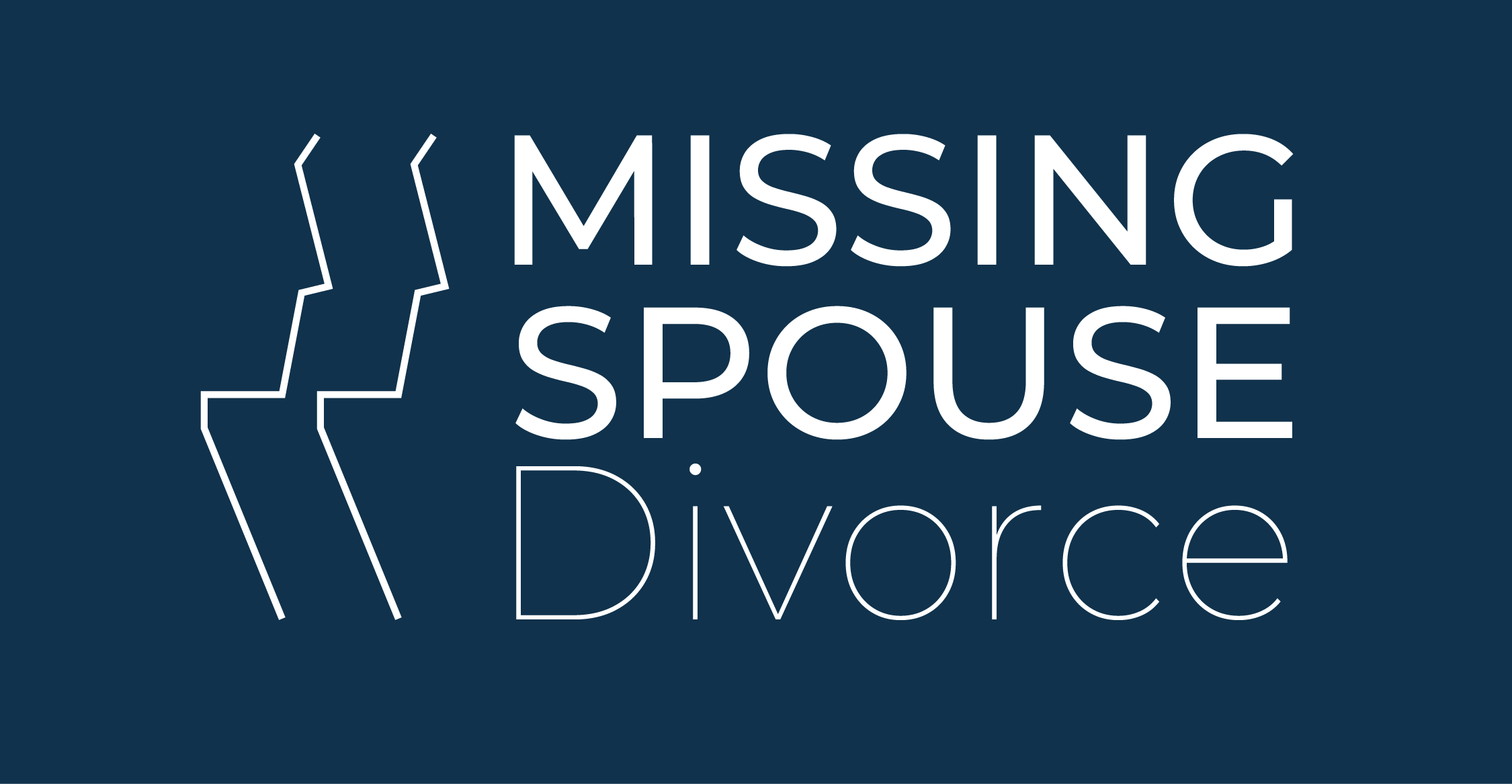Missing Spouse Divorce: Our Process vs. Traditional Services
When a spouse cannot be located, the path to divorce becomes complicated. Courts will not grant a divorce by publication — sometimes called constructive or alternate service — unless you prove that a diligent search has been completed.
At this point, most people face a decision: should they rely on the traditional route of hiring a private investigator or attorney, or use a streamlined, online process that delivers a court-ready affidavit across state lines?
Both options aim to produce the same outcome — a sworn affidavit proving diligence — but the experience, cost, and level of transparency are dramatically different.
The Traditional Route: Private Investigators and Lawyers
For decades, the standard approach to a missing spouse divorce has been to hire a private investigator (PI) to track leads and then work with a lawyer to translate those results into a formal affidavit. On paper, this makes sense. In practice, it often creates unnecessary obstacles.
SEE CORE DIFFERENCES
1. Costs That Are Difficult to Predict
Private investigators generally charge by the hour, with rates ranging from $75 to $150 per hour. Because no one can predict how long a search will take, the total bill is uncertain from the start. If an investigator follows multiple leads that go nowhere, the client still pays for the time.
Attorneys are no different. Divorce by publication cases are often billed between $1,500 and $3,500+, depending on the complexity of the search and the time spent preparing documents. Even basic steps — drafting letters, contacting relatives, or attending short hearings — can add to the bill.
In other words: with the traditional route, you often sign a retainer without knowing what the final invoice will be.
2. Hourly Models That Incentivize More Work
Private investigators and lawyers both operate on hourly billing structures. Each new call, email, or filing may extend the timeline — and increase the cost. For clients, this creates uncertainty and sometimes frustration.
The process is not always transparent. It’s not unusual for clients to receive an invoice showing hours of work without a clear sense of what was done or why it was necessary.
3. Timelines That Stretch On
Missing spouse cases are inherently unpredictable. Investigators may pursue dead ends. Attorneys may wait weeks for court schedules. Each step can add delay.
It’s common for these cases to stretch over several months, not because the law requires it, but because the workflow itself is fragmented: the investigator produces a report, the attorney drafts an affidavit, the court requests revisions, and the cycle repeats.
4. Limited Transparency for Clients
One of the biggest frustrations with traditional services is the lack of clarity. Clients are often left wondering:
• What has actually been done so far?
• Were all the recommended search steps followed?
• How close are we to a court-ready affidavit?
Because communication tends to happen only at billing milestones or court deadlines, clients may feel left in the dark.
5. Jurisdictional Boundaries
Lawyers are licensed state by state. If your case has ties to another jurisdiction — for example, if your spouse previously lived elsewhere or you recently moved — you may need to start fresh with another attorney. That means new retainers, new costs, and new delays.
Private investigators face similar limitations, as many only operate locally. If your spouse has crossed state lines, their reach may be limited.

The Online Alternative:
Structured, Nationwide,
Transparent
In response to these challenges, a new model has emerged: a flat-fee, online process that combines investigative reporting with affidavit preparation in a way that works across all states.
Instead of piecing together services, clients move through clear phases with defined deliverables.
SEE CORE DIFFERENCESPhase I: Investigator’s Report
- A licensed investigator performs a nationwide database search.
- The report is delivered directly to the client within days.
- Cost is fixed and known upfront.
Phase II: Diligence Execution & Affidavit
- The client’s own prior efforts are documented and integrated with the investigator’s report.
- A state-specific affidavit is drafted using the terminology and format required by the jurisdiction (e.g., Affidavit of Due Diligence in New York, Declaration of Due Diligence in California, Citation by Publication in Texas).
- The affidavit is sworn, notarized (online where permitted), and ready for filing.
Optional Add-On: Online Notarization
Clients can complete the notarization process from home, using secure identity verification and a short video session with a licensed notary.
The entire workflow is online, transparent, and designed to meet court expectations without unnecessary layers of hourly billing or state-specific limitations.
The Core Differences
The best way to understand the contrast is to look at the two paths side by side.
Factor
Our Structured Online Process
Traditional PI Lawyer Route
Why the Differences Matter
The final outcome in either path is similar: an affidavit that allows the court to approve service by publication. But the experience of getting there is where clients feel the most stress.
Financial strain
With hourly billing, you may start with one estimate and end with a bill two or three times higher.
Emotional fatigue
Not knowing whether progress is being made can leave clients frustrated and anxious.
Lost time
Delays are common, especially when investigators and lawyers work on different timelines.
By contrast, a structured process replaces unpredictability with clarity. Clients know what they are paying, what documents they will receive, and when they will receive them.
Why Courts Accept Either Path
It’s important to note that both traditional and online affidavit preparation models are designed to satisfy the same legal requirement.
Judges do not mandate who prepares the affidavit — they only mandate that it be:
- Thorough (covering multiple search avenues).
- Specific (listing dates, names, and results).
- Sworn (signed under oath).
- Properly titled and formatted for the state.
That’s why both methods can succeed. The difference lies in how much time, money, and stress you spend getting there.
.png)
The Hidden Effort of the Traditional Route
For clients, the traditional path often feels more labor-intensive than expected. Even after paying for professional help, you may still need to:




This is not to say the process cannot succeed — only that it is often more complicated than clients anticipate.
Conclusion
Divorce by publication requires one crucial element: a valid affidavit of search efforts. Whether you obtain that affidavit through a private investigator and lawyer or through a structured online process, the court will expect the same level of diligence and detail.
The difference lies in how you get there. Traditional services often mean unpredictable bills, longer timelines, and less transparency. A structured, online process offers flat fees, nationwide coverage, and documents drafted to the standards of your state.
For clients already facing the difficulty of a missing spouse, the choice often comes down to whether they want a path marked by uncertainty or one designed around clarity and efficiency
Important Disclaimer
We are not a law firm and do not provide legal advice or representation.
Our role is to prepare the investigative report and affidavit of search efforts in compliance with your state’s requirements. We are not a law firm and do not provide legal advice or court representation. Final approval of publication and divorce is always at the discretion of the court. Additional steps may be required depending on your jurisdiction.
.png)
.png)


.svg)






